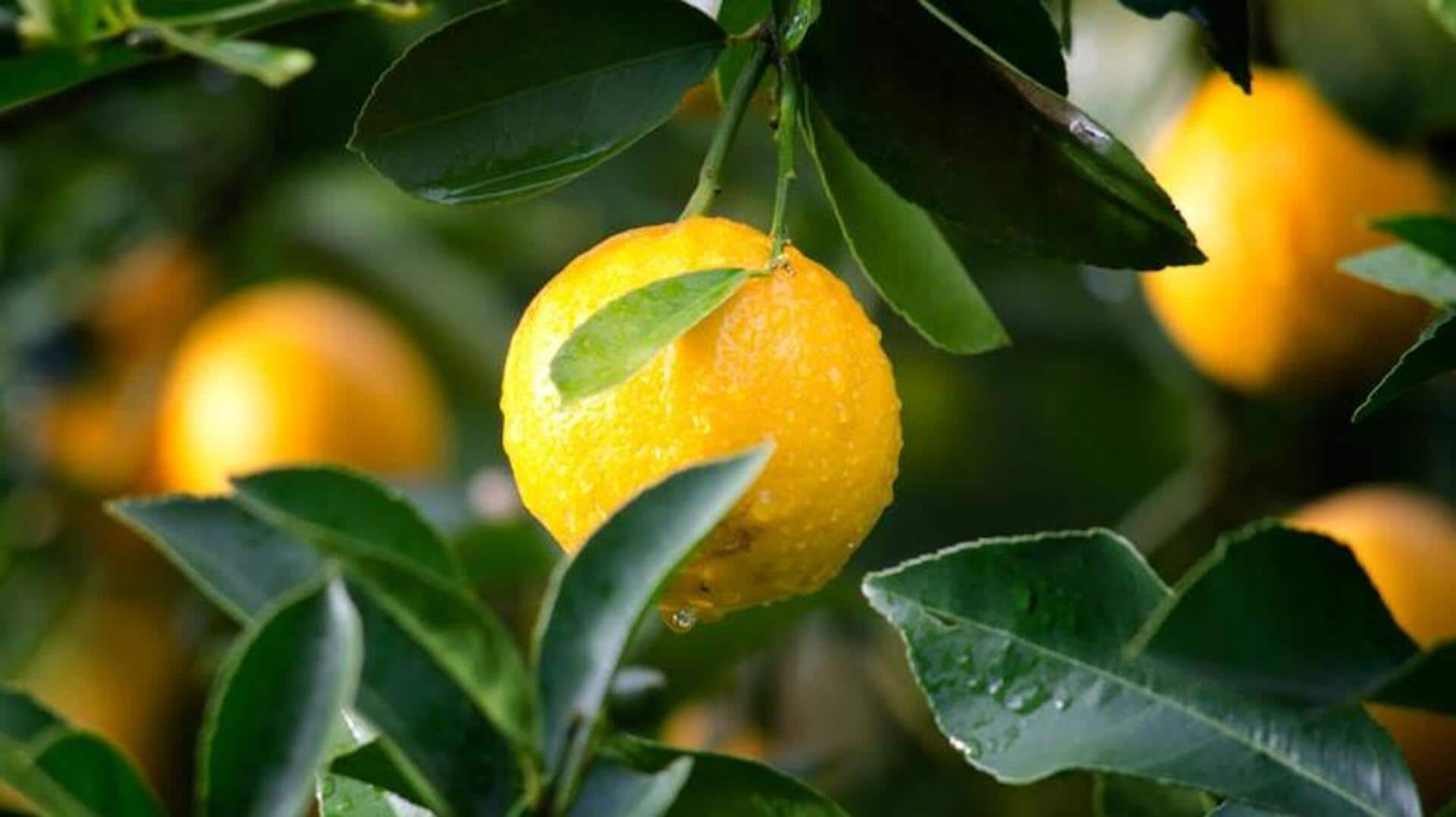
Lively lemon trees: 5 citrus cultivation essentials
What's the story
Cultivating lemon trees is a fruitful endeavor, providing not only tasty citrus for your culinary creations but also a fragrant addition to your garden. These sun-loving plants need plenty of light, regular watering, and a frost-free environment to thrive. Mastering the basics of lemon tree care will reward you with a plentiful harvest.
Variety Choice
Selecting the right variety
Picking the right type of lemon tree is key to your success. Certain varieties are better adapted to specific climates. For instance, Eureka and Lisbon lemons thrive in warmer areas, while Meyer lemons handle cooler temperatures better. Understanding the characteristics of each type will help you choose one that fits your local climate and space constraints.
Soil preparation
Planting in proper soil
Lemon trees thrive in well-draining soil with a slightly acidic to neutral pH (between six and seven). Before planting, you should test your soil's pH and make adjustments if needed. You can use sulfur to increase acidity or lime to raise alkalinity. Adding organic matter such as compost to the planting hole can enhance drainage and supply crucial nutrients.
Sunlight needs
Ensuring adequate sunlight
Lemon trees require a minimum of six hours of direct sunlight each day to bear fruit efficiently. So, when selecting a location for planting, ensure it gets plenty of sunlight throughout the day. If you're cultivating your lemon tree in a pot indoors, position it close to a south-facing window or use grow lights to supplement natural light.
Irrigation techniques
Watering wisely
Regular watering is crucial for maintaining healthy lemon trees, particularly during their flowering and fruit development periods. The objective is to maintain a consistently moist (not waterlogged) soil environment. Instead of shallow daily watering, deep watering once or twice a week is better as it promotes deeper root growth and improves drought resistance over time.
Nutrition management
Fertilizing for growth
Lemon trees thrive with regular fertilization as they are heavy feeders that need a steady supply of nutrients to support growth, flowering, and fruit production. Apply a balanced citrus fertilizer with nitrogen (N), phosphorus (P), and potassium (K) every two months during the growing season. Follow the package instructions closely to determine the correct dosage based on the size of your tree.